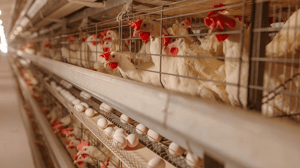Instacart to pay $5.25M in San Francisco labor settlementInstacart to pay $5.25M in San Francisco labor settlement
The same-day grocery delivery platform failed to provide health care or paid sick leave to more than 5,000 workers in the city between 2017 and 2020, an investigation found. Most of the money will go to Instacart workers.

Same-day delivery platform Instacart must pay $5.25 million to settle a gig worker compliance case in San Francisco, the city announced Thursday.
The bulk of the money, $5.1 million, will go directly to the more than 5,000 Instacart workers who worked in San Francisco between 2017 and 2020 and who were not given health care benefits or paid sick leave.
San Francisco ordinances require all employers with 20 or more workers to “spend a minimum amount” on health care benefits for each employee, the city said in a statement. The city also requires all employers to offer paid sick leave.
Instacart, in a statement to WGB, said it was pleased to have reached a settlement with the city.
“Instacart has always properly classified shoppers as independent contractors, giving them the ability to set their own schedule and earn on their own terms," the company said. "We remain committed to continuing to serve customers across San Francisco while also protecting access to the flexible earnings opportunities Instacart shoppers consistently say they want.”
The San Francisco settlement comes just three months after Instacart was ordered to pay $45.6 million to settle a labor-related case filed by the city of San Diego in 2019. That judgment covered about 308,000 people who worked for the tech company from September 2015 through December 2020 who were classified as independent contractors.
In October, the U.S. Department of Labor announced a proposed rule change that would reclassify many independent contractors, such as drivers for Instacart, DoorDash and Uber Eats, as employees. Employees are guaranteed a minimum wage and other benefits not legally extended to contractors.
The rule change, if approved, could threaten the business models of grocery and restaurant delivery companies, and others that rely on gig workers.
In 2021, DoorDash was ordered to pay $5.325 million in a similar settlement in San Francisco.
“This is the city’s second major settlement directly benefiting delivery app workers in San Francisco,” City Attorney David Chiu said in a statement. “We hope this sends a strong message that the city aggressively investigates compliance with our labor laws and works hard to ensure workers are treated fairly.”
The city’s Office of Labor Standards Enforcement (OLSE) said it had received “widespread reports” of app-based teach companies misclassifying workers, which prompted it to launch an investigation into Instacart’s practices.
“This settlement represents years of hard work by our dedicated OLSE staff,” Department Director Patrick Mulligan said in a statement. “These Instacart workers made deliveries and performed this work even during the height of the pandemic, and now they will receive the benefits they are owed.”
Instacart surged in popularity during the early days of the pandemic as consumers increasingly turned to grocery delivery to avoid venturing into supermarkets.
The 10-year-old, San Francisco-based tech company filed documents with the Securities and Exchange Commission in May for a potential IPO. By late last year, though, Instacart had shelved those go-public plans—like many other companies—given the volatility of the markets, CEO Fidji Simo said in a letter to employees obtained by the Wall Street Journal.
At its height last spring, Instacart was reportedly valued at $39 billion. After several cuts, the company slashed its internal valuation to around $10 billion a couple of weeks ago, a nearly 75% drop, according to media reports from those familiar with Instacart’s finances.
Read more about:
InstacartAbout the Author
You May Also Like






